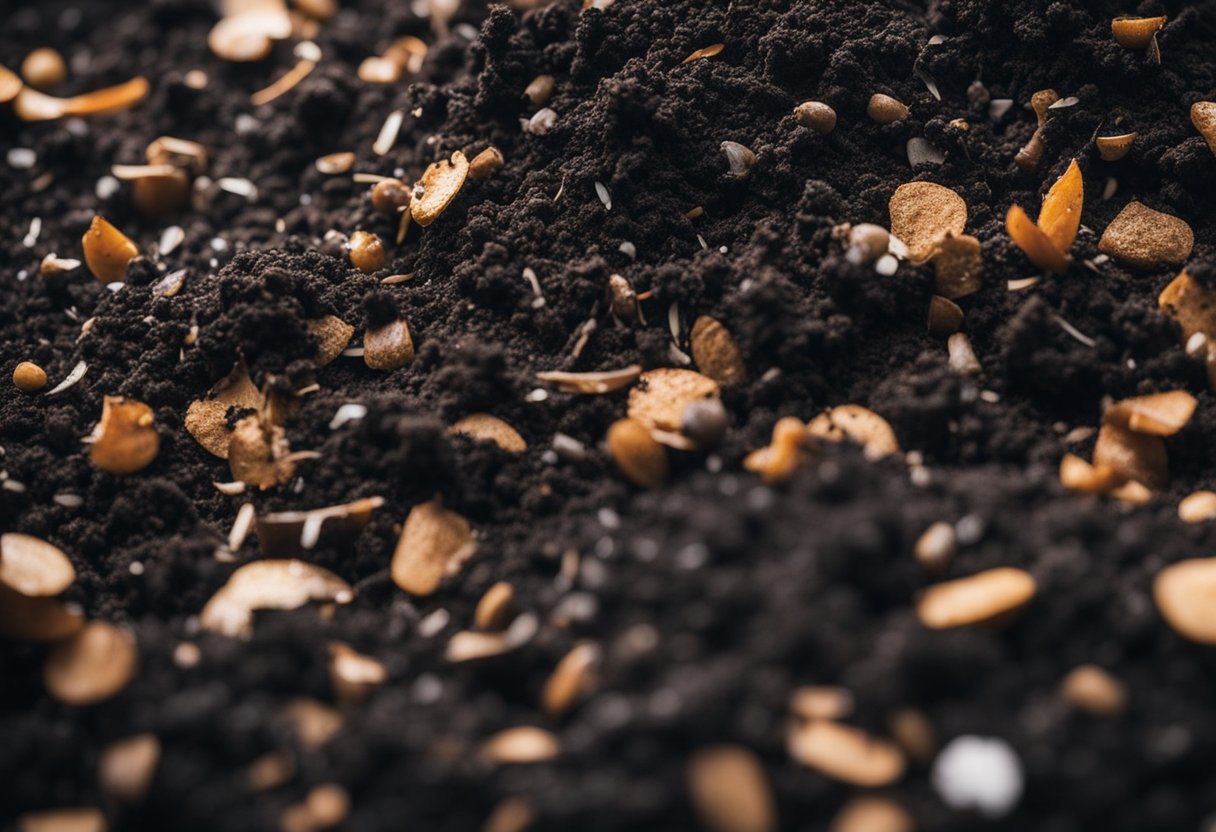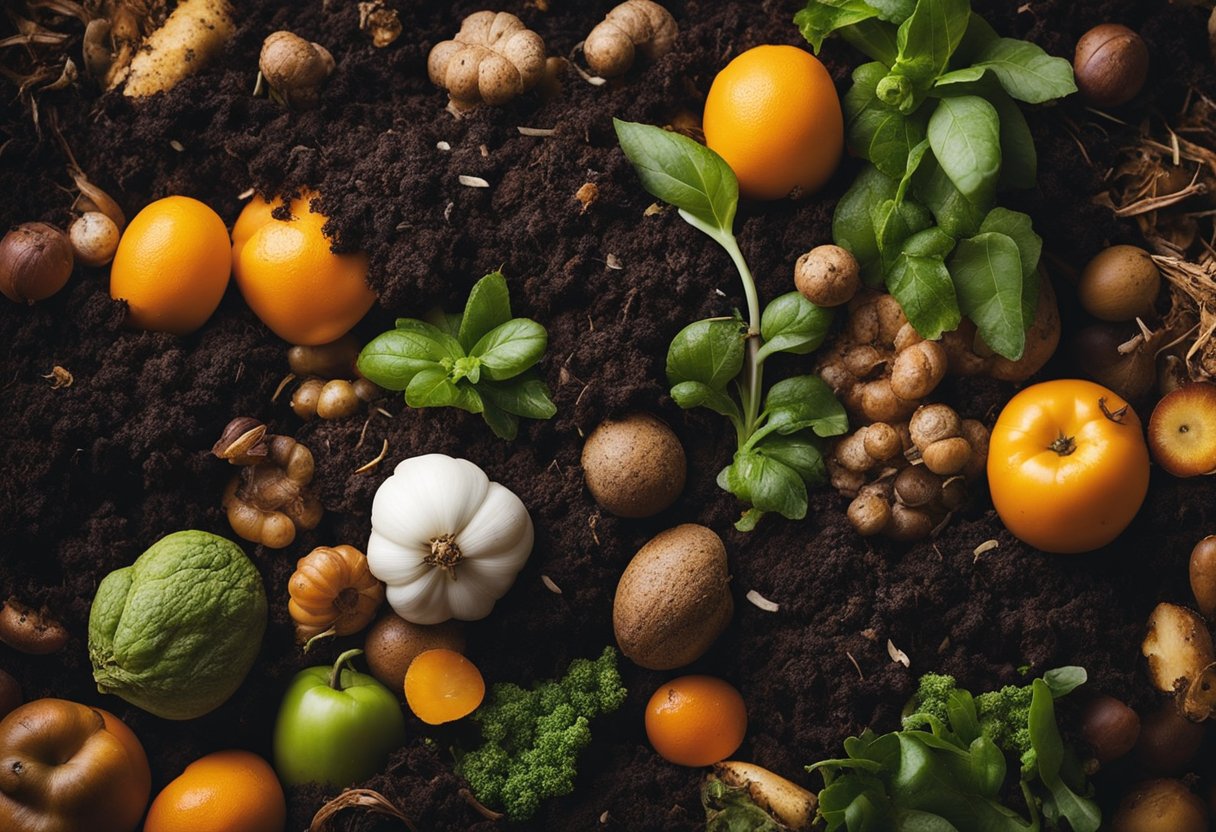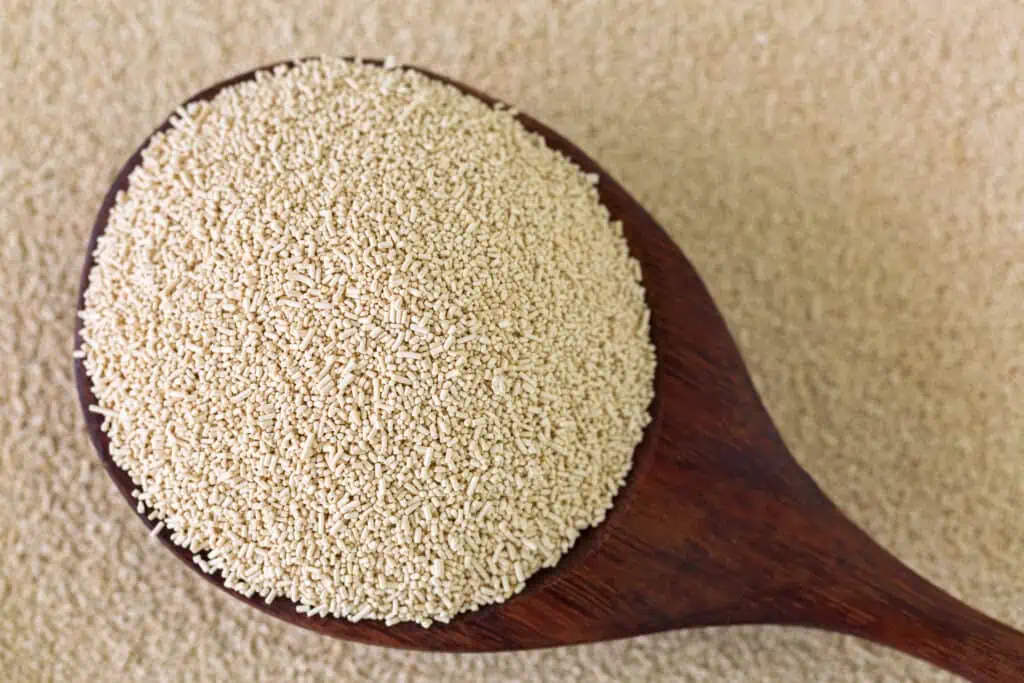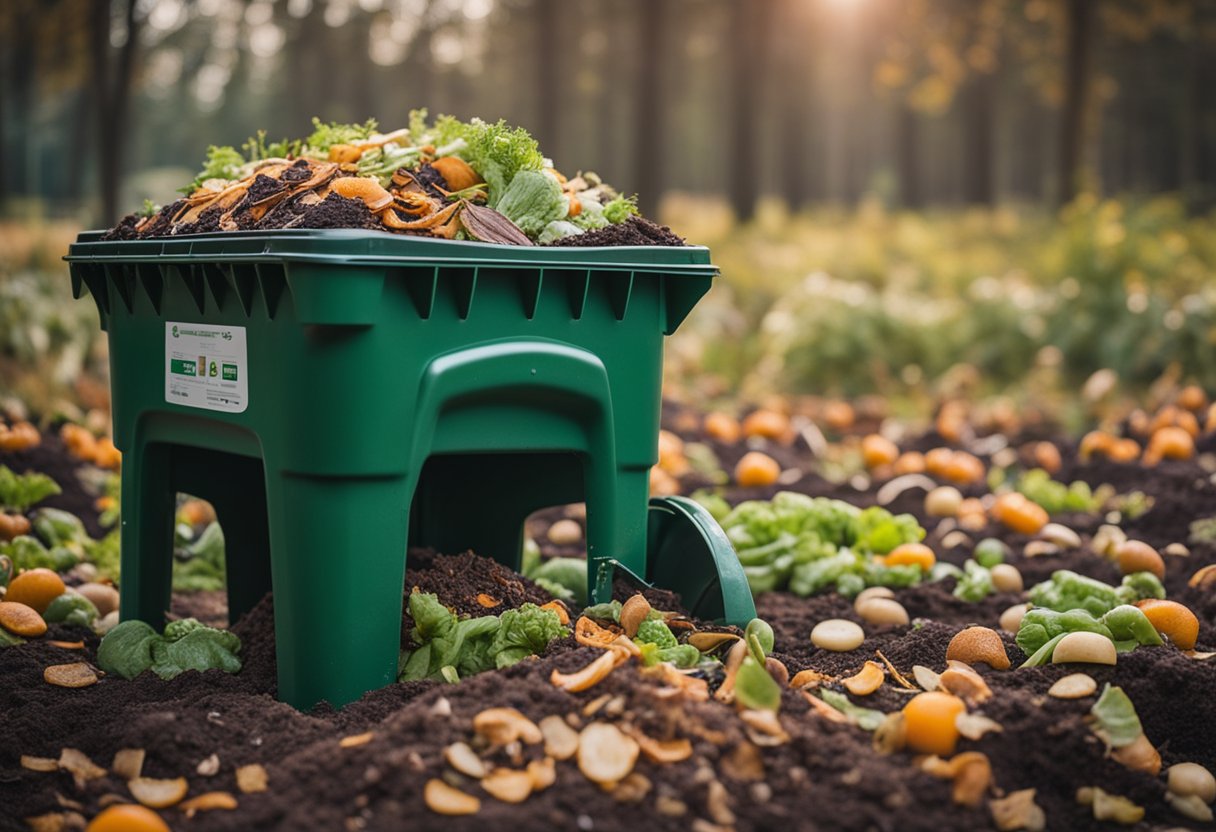As an Amazon Associate I earn from qualifying purchases.
At A Glance
Yes, you can compost yeast. Yeast is an organic material and will break down over time in a compost pile. It falls under the category of “green” compost material, providing necessary nitrogen to help decompose “brown” materials like leaves and twigs. The microbial activity in the compost pile will help in breaking down the yeast, along with other organic materials present. It’s advisable to mix yeast well with other compost materials to ensure efficient decomposition.
Composting is a great way to reduce waste and create nutrient-rich soil for gardening. But can you compost yeast? The short answer is yes, you can compost yeast. In fact, adding yeast to your compost pile can help speed up the decomposition process and provide essential nutrients for microorganisms in the pile.

Yeast contains enzymes that can break down organic matter and provide nitrogen, which is important for plant growth. However, it’s important to use yeast in moderation. Too much yeast can make the compost too acidic and harm plants. It’s also important to mix the yeast well with other organic materials in the compost pile to ensure even decomposition.
So, if you have yeast leftover from baking or brewing, don’t throw it away! You can add it to your compost pile to help create nutrient-rich soil for your garden. Just remember to use it in moderation and mix it well with other organic materials.
Understanding Composting

Composting is the process of breaking down organic materials into nutrient-rich soil. It’s a natural process that decomposes organic matter into humus, a dark, crumbly substance that is rich in nutrients and beneficial microorganisms. Composting is a great way to reduce waste and create nutrient-rich soil for your garden.
To create a compost pile, you need to combine organic materials that are high in nitrogen and carbon. Nitrogen-rich materials include things like food scraps, grass clippings, and manure. Carbon-rich materials include things like leaves, straw, and wood chips. It’s important to maintain a balance between nitrogen and carbon in your compost pile to ensure that it decomposes properly.
Microbes are essential to the composting process. They break down organic materials into smaller pieces and release nutrients into the soil. To accelerate the composting process, you can add a compost activator, such as yeast, to your pile. Yeast contains enzymes that help break down organic materials more quickly.
Aeration is also important for composting. Microbes need oxygen to survive, so it’s important to turn your compost pile regularly to ensure that it is well aerated. Turning your pile also helps to mix the organic materials and ensure that they decompose evenly.
In addition to aeration, drainage is also important. Your compost pile should be moist, but not too wet. If it’s too wet, it can become anaerobic, which means that there is not enough oxygen for the microbes to survive. If it’s too dry, the microbes will not be able to break down the organic materials.
Cellulose is a common component of organic materials, such as leaves and wood chips, that can be difficult to break down. To help break down cellulose, you can shred or chop your organic materials before adding them to your compost pile.
Overall, composting is a simple and effective way to reduce waste and create nutrient-rich soil for your garden. By understanding the basics of composting, you can create a healthy and productive compost pile that will provide valuable nutrients for your plants.
Role of Yeast in Composting

Yeast is a single-celled organism that is commonly found in bread, beer, and wine. It plays an important role in the fermentation process of these products, but what about its role in composting?
When it comes to composting, yeast is not a necessary component, but adding it to your compost pile can have some benefits. Yeast contains enzymes that can help break down organic material, which can speed up the composting process. Additionally, yeast can introduce beneficial microbes to the compost pile, which can further aid in decomposition.
However, it’s important to note that adding too much yeast to your compost pile can actually have the opposite effect. Yeast thrives in environments with high levels of sugar and low levels of oxygen, which can create an anaerobic environment in your compost pile. This can slow down the composting process and create unpleasant odors.
Overall, while yeast can be a helpful addition to your compost pile, it’s important to use it in moderation and maintain a healthy balance of beneficial microbes and oxygen in your compost pile.
Composting Kitchen Scraps

Composting kitchen scraps is an easy and eco-friendly way to reduce waste and create nutrient-rich soil for your garden. It also helps reduce greenhouse gases and supports the greening of your community.
When it comes to composting kitchen scraps, there are a few things to keep in mind. First, you want to make sure you’re composting the right materials. Some common kitchen scraps that are great for composting include fruit and vegetable scraps, coffee grounds, and eggshells. These materials are rich in nitrogen, which is essential for healthy soil.
However, there are some materials that you should avoid composting. These include meat, dairy, and oily foods, as well as anything that has been treated with pesticides or herbicides. These materials can attract pests and create an unpleasant odor.
Another thing to keep in mind is the ratio of carbon to nitrogen in your compost pile. You want to aim for a ratio of about 30 parts carbon to 1 part nitrogen. Some good sources of carbon include dried leaves, straw, and shredded paper.
If you’re wondering whether you can compost yeast, the answer is yes! Yeast is a single-celled organism that plays an important role in the fermentation process of bread, beer, and wine. When added to your compost pile, yeast can help break down organic matter and create a healthy environment for beneficial bacteria and fungi.
In addition to yeast, you can also compost sugar and expired yeast. These materials are high in nitrogen and can help speed up the composting process. However, it’s important to use them in moderation, as too much nitrogen can create an unpleasant odor.
Overall, composting kitchen scraps is a great way to reduce waste and create nutrient-rich soil for your garden. By following a few simple guidelines, you can create a healthy compost pile that will benefit both your plants and the environment.
Impact on Soil and Plant Growth
Composting yeast can have a positive impact on both soil and plant growth. Yeast is a rich source of nitrogen, which is an essential nutrient for plant growth. When composted, yeast can help provide the necessary nutrients for plants to thrive.
In addition to providing nutrients, composting yeast can also help improve soil structure by increasing organic matter content. Organic matter improves soil structure by increasing water retention and reducing erosion. This, in turn, can help improve plant growth by providing a more stable environment for roots to grow.
Furthermore, composting yeast can also help reduce the need for chemical fertilizers, which can have negative effects on soil health and the environment. By composting yeast, we can reduce the amount of synthetic fertilizers needed to maintain healthy soil and plants.
Overall, composting yeast can have a positive impact on soil and plant growth by providing essential nutrients, improving soil structure, and reducing the need for chemical fertilizers.
Composting Brewing and Baking Byproducts
As someone who enjoys brewing beer or baking bread, you may be wondering if you can compost the byproducts of these activities. The good news is that many of these byproducts can be composted and turned into nutrient-rich soil for your garden.
One common byproduct of beer brewing is yeast. While some sources suggest that yeast can be composted, others suggest that it should be avoided as it can attract pests and cause unpleasant odors. However, if you are careful about how you add yeast to your compost pile, it can be a valuable addition.
When adding yeast to your compost pile, it is important to mix it in well with other organic materials. This will help to prevent clumping and ensure that the yeast is evenly distributed. It is also a good idea to avoid adding too much yeast at once, as this can cause the compost pile to become too acidic.
If you are a baker, you may also be wondering if you can compost the leftover dough and bread scraps. The answer is yes! Bread and dough can be added to your compost pile, but it is important to break it up into small pieces first. This will help it to decompose more quickly and prevent clumping.
In addition to yeast and bread, other brewing and baking byproducts can also be composted. For example, spent grains from beer brewing can be added to your compost pile. These grains are high in nitrogen and can help to balance out the carbon-rich materials in your compost pile.
Overall, composting brewing and baking byproducts can be a great way to reduce waste and create nutrient-rich soil for your garden. Just be sure to follow good composting practices and avoid adding too much of any one material at once.
By following these tips, you can prevent pests and mold from taking over your compost pile and ensure that your composting efforts are successful.
Conclusion
In conclusion, composting yeast is a great way to enhance the effectiveness of a composting routine and provide valuable nutrients for gardens. Yeast can be mixed well with other organic materials in the compost pile to prevent excessive acidity and strong odors.
When composting yeast, it is important to maintain a balance between carbon and nitrogen. Yeast is a good source of nitrogen, but too much nitrogen can lead to a buildup of carbon dioxide in the compost pile, which can harm the microorganisms responsible for breaking down the organic material.
Overall, composting yeast is a simple and effective way to reduce waste and create nutrient-rich soil for your garden. By following some basic guidelines and maintaining a proper balance, you can turn your leftover dough into rich soil for your garden.
